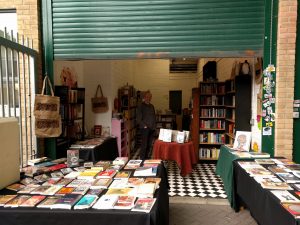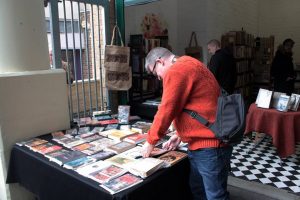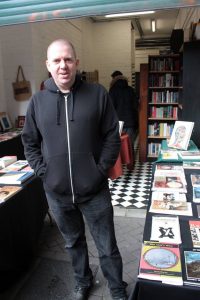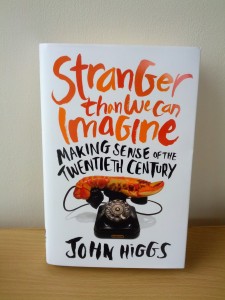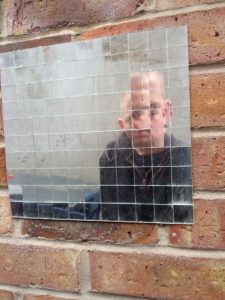
I first heard about Jarett Kobeks’ novel “I hate the Internet” from John Higgs, who told me about the book’s comparison between corporations making money from user-generated content and the publishers that stole from Jack Kirby. As the book puts it, “The business practices of the American comic-book industry have colonized Twenty-First Century life“. Kobek goes on to say that “The only difference being that Marvel, like, you know, actually paid Jack Kirby before he was screwed. Twitter didn’t pay its creators.” John described the book as being more of an argument than a novel, but it appealed to me. It’s also apparently the first self-funded book to be reviewed in the New York times.
The book explicitly claims that it is a bad book: “The writer of this novel gave up trying to write good novels when he realized that the good novel, as an idea, was created by the Central Intelligence Agency. This is not a joke. This is true.” As Kobel explains, “the CIA funded both The Paris Review and the Iowa Writers’ Workshop, the latter the prototype of a swarm of creative writing courses” Vice recently published an article, How the CIA infiltrated the world’s literature, which gives some background on this.
I read the book in one go. It’s the sort of novel I love, falling into the category described by David Shield’s Reality Hunger, blurring non-fiction with fiction. It’s also very much a meta-fiction: one chapter is abandoned in favour of a summary of the arguments it was meant to make. It’s written in a similar mode to Kurt Vonnegut, albeit more cynical (there is even a science fiction writer among the characters, with the plots of his books described).
The novel is mostly a collection of rants about the modern world. It contains some vicious critiques of social media, all despairing: “How do you reason with people who make arguments about human dignity on machines built by slaves in China? How do you reason with people whose primary expression comes pre-branded by Twitter?”
One of my favourite aspects of the book was its references to comic books. At one point, the Internet is described as “a wonderful resource for artist engagement, expanding a fan base, and reading about the feud between Alan Moore and Grant Morrison“. The last of these is a subject that has fascinated me – I was one of the supporters of the Last War in Albion Kickstarter, which produced the first volume of an epic history of this feud. The book’s description of Grant Morrison is harsh but amusing:
“Other than the oodles of quality which seeped from his work, Morrison’s principle distinguishing feature was that he had the bad luck of being a comic-book writer at the same time as Alan Moore. To paraphrase the preeminent comics critic Andrew Hickey… if Alan Moore had not existed, Grant Morrison would have been considered the single greatest writer in the history of the medium”
There is a definite danger in how social media overwhelms our communications and culture. In 2017, having a blog feels anachronistic. As Facebook, twitter and Medium expand, content gets boosted according to how well they achieve these company’s aims. A good example of this is the article The Three Reasons Youtubers Keep Imploding. I’m not sure what the answer is, although the Indie Web offers a glimmer of hope.
The Guardian interviewed Kobek in December. It was a fairly depressing read. Kobek said:
Interviewer: Reading your book made me think that we simply haven’t even had the language to criticise the internet until now. That there’s been no outside to the internet. No place to oppose it from…
Kobek: I think the outside is publishing, actually. I mean publishing in the most Platonic sense of the word, rather than the squalid industry that we have. I think that books actually can be anything. Publishing’s response to the internet has been completely pathetic, but God, if there’s going to be an opposition, a response, it’s not going to come in the form of tweets
Maybe the future is zines, maybe it’s something else. By the end of the book I felt quite despairing, and emailed John Higgs to tell him so. And, he reminded me there are good things about the Internet, and Kobel’s critique is not the only way of looking at things. “Pessimism is easier, of course, but pessimism is for lightweights”.
But Kobek is right, there is a problem to be faced here. As he said in his Guardian interview:
we live in a very dark moment where if you want to be part of any extended conversation beyond a handful of people, you do have to sign on to some things that, ultimately, are very unpalatable. Every era has its unanswerable questions, so maybe the thing to do, which is what I did in the book, is to just acknowledge the inherent hypocrisy of all of it. Though maybe that’s an easy dodge.

